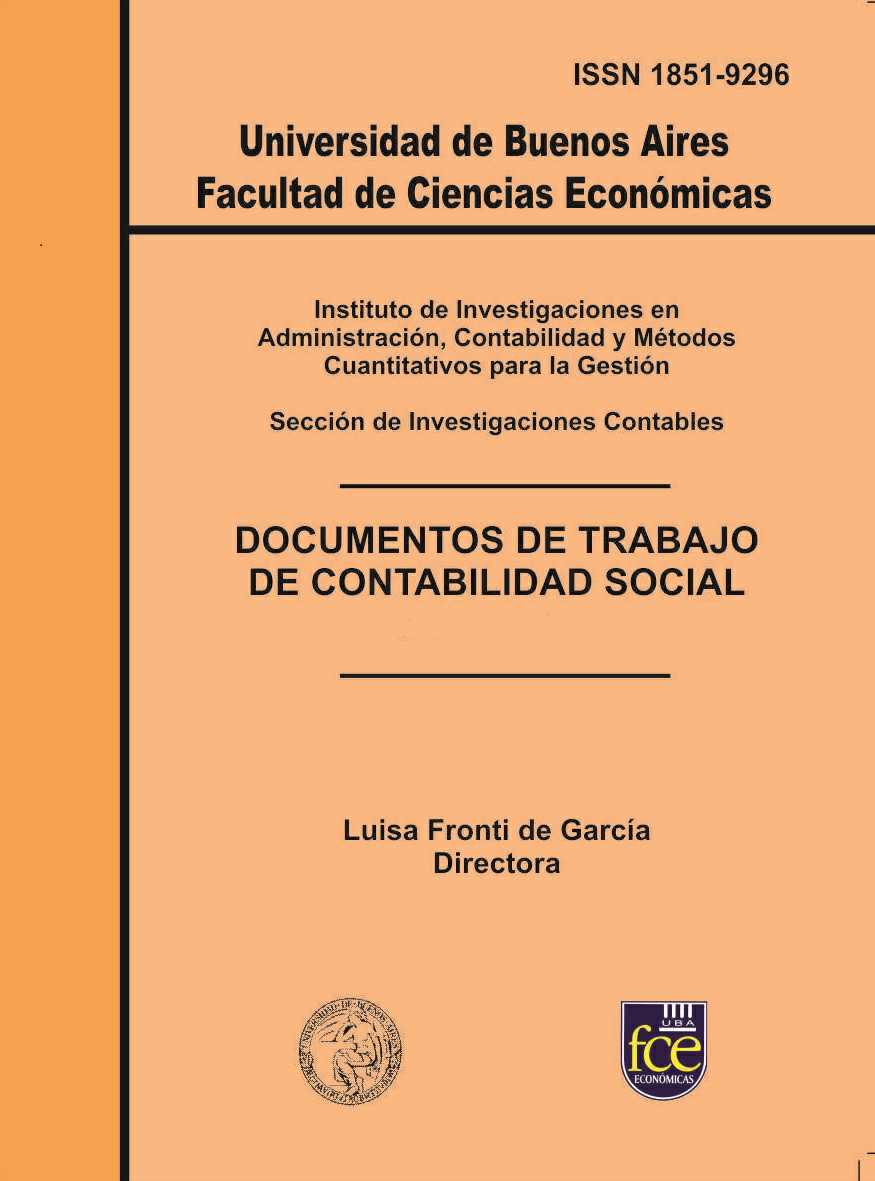CORPORATE SOCIAL REPORTING IN DEVELOPING COUNTRIES: THE CASE OF ARGENTINA
Resumen
“Corporate Social Reporting” (CSR) provides information regarding Corporate Social Responsibility for different parties involved in the companies’ operation (Gray, Kouhy, & Lavers, 1995). These groups comprise of user-oriented groups (interested party group and normative group) and producers (company group). The first user-oriented group is the interested party group, includes those who are most interested in the reports’ findings, namely the shareholders (Park, 2003) and the consumers (Adebayo, 2000). The second, the normative group, consists of those who write the laws, including the government and accounting associates. Finally, the company group, specifically the producers are those who prepared the reports. Some studies that have been conducted on developed countries (Adams, Hill, & Roberts, 1995; O’ Dwyer, 2002; Solomon & Lewis, 2002) discuss incentives that motivate companies to disclose their information. However, few papers have discussed this issue in the context of the developing world (Belal, 2000; Kuasirukun & Sherer, 2004; Ite, 2004; Pedwell, 2004). CSR incentives are different in developed countries from those in developing countries. For the interested party group and the normative group, the most important motive for corporate social disclosure is the improvement of the company’s corporate image (Solomon & Lewis, 2002). For the company group the main motive for corporate social disclosure is the acknowledgement of social responsibility (Solomon & Lewis, 2002). Both in developed and developing countries, the interested party group and the normative group consider their reason as much more altruistic than the opinion of the company group. The criticism of CSR argues for an increase of corporate social responsibility as there is an amount of disclosure (Solomon & Lewis, 2002). It is also criticized that organizations often have good intentions as for as sustainability matters are concerned. However, they cannot transform those intentions into actions and results (Moneva, Archel & Correa, 2006). Such is the case of Argentinean companies (Puppim de Oliveira & Gardetti, 2006). In the following section CSR in Argentina is illustrated. The objectives and research method are then presented. Thirdly the report on the preliminary empirical findings concerning the practice of CSR in Argentina is covered. The paper ends with a summary and preliminary conclusions.
Publicado
2008-12-01
Cómo citar
GARCÍA FRONTI, I. (2008). CORPORATE SOCIAL REPORTING IN DEVELOPING COUNTRIES: THE CASE OF ARGENTINA. Documentos De Trabajo De Contabilidad Social, (1). Recuperado a partir de https://ojs.econ.uba.ar/index.php/DTCS/article/view/722
Sección
Artículos



